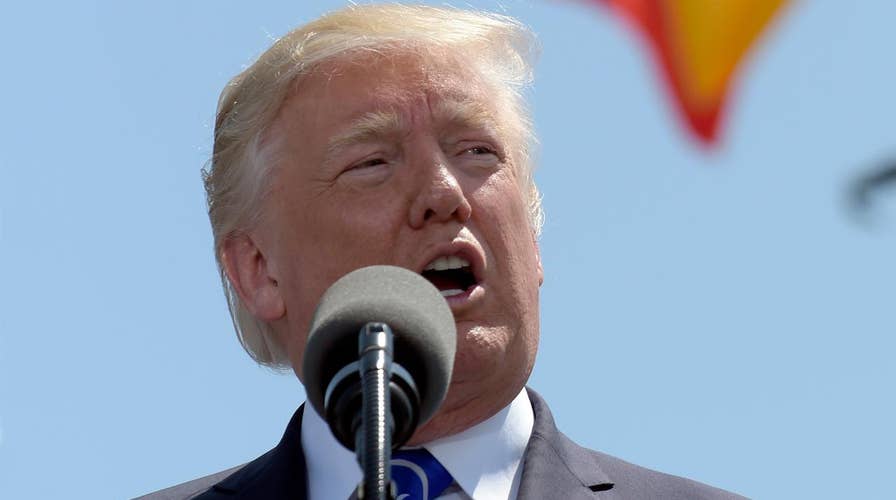Trump: No politician has been treated worse by the media
President delivers commencement address at the U.S. Coast Guard Academy
Editor's note: An earlier version of this was published on May 12.
President Trump seems hell-bent on courting controversy, if not downright enmity, from the Washington establishment. His vague comments about what he said, or didn’t say, to former FBI Director James Comey, as well as similar questions about what he told Russian diplomats in the Oval Office raise a serious question: does he still want to be president?
There is no surer way to ensure negative press coverage (“No politician in history has been treated worse,” he lamented on Wednesday) than to antagonize the press. Banning American news media from his Oval Office conversation with Russia’s foreign minister, while allowing a TASS photographer to record the event, may be payback against a press corps he despises. But it also fuels suspicions that he is indebted, somehow, to the Kremlin.
His undisciplined tweets give the public contradictory information, and a sense that he wants to run the country via social media instead of democratic debate.
The question is: to what end?
Most of Trump’s executive orders – there have been 36 so far – are in keeping with his campaign promises and have been well-received by his political base – those voters who felt they were being ignored by traditional politicians, and wanted, as Trump put it, to “drain the swamp” of Washington.
Tighter immigration restrictions are popular with Americans who believe we have lost control of our borders. The process of repealing ObamaCare faces an uphill battle in the Senate, but that cannot be blamed on the president.
The military action against Syria after it attacked its own citizens with chemical weapons was honorable and justified. It also sent a message to rogue nations like North Korea to tread carefully.
The new trade deal with China that increases American exports and will lower our trade deficit is long overdue. The tax code needs reform and this administration is preparing just such an overhaul.
Why then does the president muddy the political waters by ranting against Democrats who oppose him, against news organizations that ask tough questions, against foreign leaders who pursue policies different from his? Why does he obsessively remind Americans that it was he, and not Hillary Clinton, who was elected president? Why must he spar with television personalities who dislike him?
Bellwether wonders whether Mr. Trump actually plans to stay in office for four years. Could he be considering a shorter stay in the White House, passing the baton to the widely respected Vice President Mike Pence? Might Trump feel that if and when he achieves his major goals – tighter borders, lower taxes, more American made goods – he can declare victory and return to his successful career in the private sector?
The president, in his first four months in office, has accomplished much of which to be proud. Like Ronald Reagan, his optimism about America’s future is contagious. The stock market, which many predicted would tank if he were elected, has rebounded convincingly. Consumer confidence is up. Several major employers have announced that they will create thousands of jobs in America.
But his random tweets, his crude public use of insults and threats, his blatant disregard for decorum and integrity of the office of president, raise questions about his willingness to fulfill those duties for the long run.
Trump is slowly accomplishing his mission. If he plans to walk away from Washington once he feels he has fulfilled his promise to the American people, he should say so. Both his supporters and his growing list of opponents would probably respect his candor, and might work together to give him what he wants, so he will go away.

